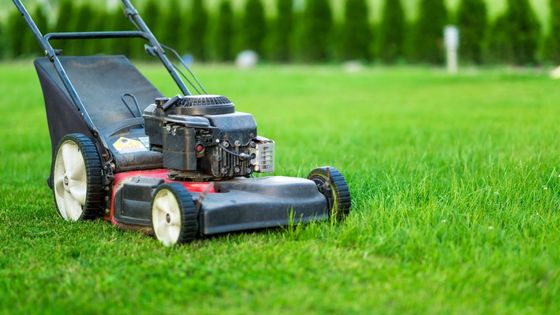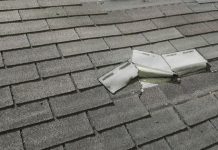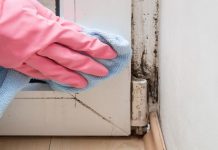Using an electric mower to cut damp grass is not a good idea if you want to avoid getting a lot of mud on your mower, or even if you don’t want to spend money on a gas mower. The reason for this is that electric mowers have a tendency to get very hot, which can burn you. It also has a tendency to cause fungal disease, so it’s better to use a gas mower, especially if you live in a wet area.
Gas-powered mowers are safer in wet conditions than electric mowers
Whether you have a large or small lawn, gas-powered mowers are safer in wet conditions than electric mowers. Not only are they easier to start, but they also require less upkeep and replacement parts.

Electric mowers may cause an electric shock when you are mowing in wet grass. Corded mowers also have the same risk. This can be a big problem, especially if you have a cordless unit.
Gas-powered mowers are more noisy than electric mowers. They also need gasoline. If you store your gas properly, it will not be damaged by moisture. It should be stored in a place where there is good air circulation and away from electrical sources. It’s best to get a gas mower serviced regularly.
Gas-powered mowers can also handle thicker grass. This can make them a better choice for large lawns. However, they are noisier and require more maintenance. They also require oil, spark plugs, and fuel stabilizer. You should also make sure that you keep your air filters clean. You should also empty your gas before you don’t use it.
Damp may cause many issues you may also claim compensation for damp grass hire a housing disrepair solicitor for your claim, who help you step by step in your claim case.
Gas-powered mowers also have a lower risk of corrosion than electric mowers. They need to be stored in a garage or shed and kept away from the elements.
Grass clippings can damage electric mowers
Leaving grass clippings on your lawn is an excellent way to recycle your grass and help enrich the soil. While it may seem like a waste of time, it saves you money. It also helps keep the unnecessary bulk out of landfills.
When you mow on wet grass, you run the risk of causing rust on your mower’s blades and wheels. Moisture can also cause corrosion in the gasoline tank of your mower. It can also cause mould to form. This mould can spread to your lawn when you mow again.
You should also keep in mind that wet grass is much harder to cut. You will have to clean your mower deck more often, and the engine will work harder to remove the caked-on substance. This can also increase the risk of injury when you’re mowing.
Wet grass clippings can also make it harder to steer your mower. Moisture can also rust the underside of your mower’s deck. The rust will create a breeding ground for mould. This can also cause damage to the mower’s wiring and connections.
If you’re using a corded electric lawn mower, be sure to keep the cord away from the wet grass. If you’re using an extension cord, the risk of an electric shock can increase.
Grass clippings can cause fungal disease
Grass clippings can contain a variety of diseases. These diseases can cause yellowing spots, and brown patches, and even damage your lawn. This is why you should take the time to clean up your lawn and the clippings you leave behind.
Fungal diseases thrive in wet environments. They can also be spread by mowing and mowers. This can cause problems with gas, electric currents, and other parts of your lawn mower. It can also corrode the engine of your lawn mower.
The biggest problem with cutting wet grass is that it is difficult to cut the grass evenly. This can lead to tears, which can open up the door for fungus to take root. This can also lead to mould, which can spread to your lawn.
The other problem is that wet grass clippings can also cause rust. This will lead to mould on the mower deck, which can then spread to your lawn. If you’re looking to keep your lawn looking its best, raking the clippings off your lawn may be your best option. This will also help you to move the clippings to a compost bin.
Mowing a wet lawn can be stressful. The water can get into your gas tank, your mower’s fuel tank, and even the engine of your mower. It can also damage your mower’s blades.

















